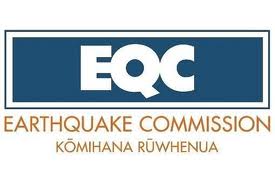Leaking and blogging – EQC injunction and breach of confidence
Ursula Cheer, Professor of Law, University of Canterbury, Christchurch comments on the legal issues raised in the case of the EQC injunction, and its subsequent flouting.
FAQs raised by EQC injunction and breach of confidence
 EQC has obtained an interim injunction prohibiting the publication of information released by accident which contains details of repair plans and estimates for repair costs for thousands of Christchurch homes (Earthquake Commission v Unknown Defendants [2013] NZHC 708). This development raises many legal issues. Here is an FAQ attempting to answer some of these questions. Many cannot be answered as yet.
EQC has obtained an interim injunction prohibiting the publication of information released by accident which contains details of repair plans and estimates for repair costs for thousands of Christchurch homes (Earthquake Commission v Unknown Defendants [2013] NZHC 708). This development raises many legal issues. Here is an FAQ attempting to answer some of these questions. Many cannot be answered as yet.
Who does the order cover?
The order is directed at ‘those who have received the information contained in the spreadsheet inadvertently released by EQC on 22 March 2013’. The judgment also refers to ‘an unnamed defendant’ and mentions here the author of a specific blog site. Therefore, the order is slightly ambiguous in that it appears only to apply to those who had received the information up to the date of the order – 10 April 2013. At that time, this appeared to be a Mr Staples, an earthquake repair contractor in Christchurch who received the information due to the original accidental release, and the unknown blogger who apparently received the same information from a disgruntled EQC employee and has now made it available online. However, if the order does not apply to any further people who have, or will receive the information, then its effect is very limited and of little practical use. Further orders may be required or this order may be interpreted to cover those others should further leaks occur. In the meantime, it seems likely that those who access the information do not behave unlawfully as long as they do not publish it to anyone else. There is, however, one caveat to this. NZ has a new tort of intrusion into seclusion, and it is possible this tort may be breached if you look at anyone’s else’s information other than your own!
How can a court order apply to ‘unknown persons?’
It is rare, but not unheard of, for injunctions to be made against unknown parties. The judgment itself refers to a New Zealand copyright claim where this happened (Tony Blaine Ltd v Splain [1993] 3 NZLR 185), and a few years ago, Don Brash obtained an injunction against unknown persons restraining them from releasing emails belonging to him which may have come into their possession (Brash v John and Jane Doe CIV-2006-485-2608, 16 November 2006), although he later withdrew the order when he discovered the recipient was Nicky Hager and not the people he thought had obtained the information. And in the United Kingdom, a privacy injunction against ‘all the world’ has been maintained for years to prevent the disclosure of the identity and location of the two young men who murdered the toddler James Bulger following their release from prison.
What is an interim order?
Interim injunctions are temporary orders made by the court intended to retain the status quo for the applying party so that they do not suffer serious damage. These orders usually prohibit a party from doing or continuing to do something, (such as here, publishing information), or order them to undo something that has been done (for example, destroying a publication, like a book). Because they are temporary, interim injunctions only have effect for a limited time. The first interim order in this case lasted for two days and then came up for review. That order was extended until 26 April when the judge will review what further information he needs to decide whether it should be made permanent. A full hearing of that question is contemplated for 6 May.
Another thing to note about interim orders is that they are often argued urgently, meaning the judge is under considerable pressure and has to rely on the documents that are presented to the court by the applicant. Further, due to that urgency, the parties who might be affected by the order are often not notified or are notified too late to appear and argue against the application. It appears that in this case, the blogger was not notified of the original hearing, and although notified of the second, was not able to get to that hearing. That is undesirable. In the United Kingdom, there are now clear guidelines used when privacy injunctions are applied for that require the best efforts to be made to notify the other side when free speech may be affected by an order, even if the matter is urgent.
Because interim injunctions can have significant effects, courts are supposed to grant them sparingly and with care. The court has to decide whether the matter is serious enough, who would suffer the most damage if an order is not made, and what the overall justice in the case is. Additionally, in cases where an order might shut down speech, there is case law suggesting even more stringent requirements –the applicant has to show they have a ‘clear and compelling case’ to be able to pre-censor speech ( TV3 Network Services v Fahey [1999] 2 NZLR 129). It is not clear from the judgment in the EQC case that this extra requirement was addressed. It may well have been, but currently that is not obvious from the reasons given for the decision.
In any event, a principle which is used when deciding whether to make interim orders permanent, is whether the order can be enforced from a practical point of view. If those who breach the orders cannot be identified or are off-shore, this principle may render any order pointless. On the other hand, there is judicial disagreement about this. Some judges see such orders as having a deterrent effect, therefore they are seen as still serving a useful purpose. The Jamie Bulger order discussed above is such an example.
How did EQC get the order?
EQC argued that the blogger had indicated he intended to publish the information. It used the law relating to confidential information to support its application. This requires that an applicant show the information was confidential in nature and that it has been or may be published to the detriment of the applicant. Crucially, there is a public interest defence to this sort of claim. Usually, if an applicant can establish the information is confidential, the burden shifts to the party who is resisting the application to demonstrate that in fact there was public interest in the information. However, where the information, as here, is government information, that burden stays on the applicant, who has to show additionally that there is a public interest in the information remaining secret. Again, there is no clear evidence from the judgment that this burden was discharged and how it was discharged in this case. EQC has released statements to the effect that the information is commercially sensitive and may skew the market for repair and rebuild work in Christchurch if it is released, but there is no evidence in relation to the interim order that the court considered such arguments and accepted them. Once again, this might have been done, but we cannot tell by looking at the judgment.
Another defence that can be argued in breach of confidence cases is that the information has already been made public. This defence is a difficult one to succeed with as otherwise it might encourage deliberate leaking. It cannot be pleaded by anyone connected with the original leak.
Aren’t people entitled to the information that relates to them and their property?
Yes, individual homeowners may be entitled to request their information under the Privacy Act 1993, under Information Privacy Principle 6, which allows access to personal information held by an agency if it can be retrieved readily. Grounds to refuse include that a party’s commercial position would be unreasonably prejudiced, and one would expect EQC to make that argument. Homeowners could then complain to the Privacy Commissioner if they do not get their information because of this. The Commissioner works by way of investigation and conciliation to find a resolution so that both parties are happy with the process. If a complaint cannot be settled, the Commissioner may refer it to the Director of Human Rights Proceedings who can bring proceedings to the Human Rights Review Tribunal under the Human Rights Act 1993. The complainant may self-refer if the Commissioner does not do so. The Tribunal has the normal powers of a court and can order that the interference with privacy cease, award damages up to $200,000 or costs, or make such other order as it sees fit. Damages up to $40,000 have been awarded, but awards are more often below $5,000.
However, it is important to note that release of all of the details relating to all these properties online to a mass audience may not only be a breach of confidence, but involves possibly breaching the ordinary tort of privacy too. There is a public interest defence to that action too.
What are the public interests involved here?
There are a number of public interest arguments that can be made. Members of the public in Christchurch have a general interest in having their claims settled quickly, accurately and fairly. Taxpayers generally have an interest in that too, and in knowing that EQC is performing as it should. However, those taxpayers, including Christchurch taxpayers, have an interest in EQC getting as much value for the taxpayer dollar, within the law. And Christchurch residents have an interest in a market being maintained that does not become an obstacle to the quick, accurate and fair settlement of claims. Whether the leaked information serves any of these public interests is difficult to say without relevant expertise and fully informed argument.
What now?
EQC appears likely to insist that its injunction be enforced. This means much depends on what happens at the substantive hearing in early May. In the meantime, a number of individuals will no doubt apply to have access to their information under the Privacy Act. The reasons EQC have given for withholding the information will be tested both in court in relation to the breach of confidence claim and within the privacy complaints jurisdiction. Further leaks may lead to further injunctions or adaption of the existing order to hold the line in the meantime.
Article by Ursula Cheer, Professor of Law, University of Canterbury, Christchurch.
